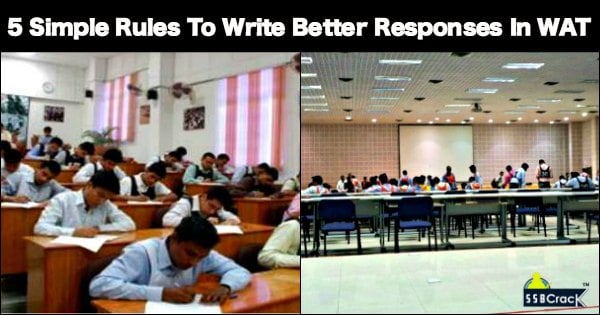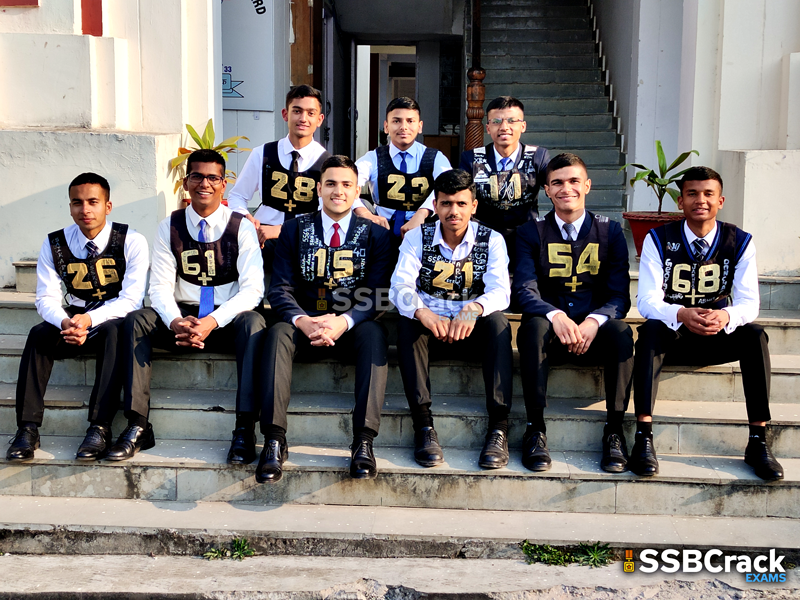The SSB psychological tests are designed as a sequential series of challenges primarily focused on writing continuously for two hours. This format resembles a game of pen and paper, where participants are required to articulate their thoughts effectively. While many argue that grammar is secondary to the expression of ideas, it’s crucial to understand that seemingly minor grammatical errors can dramatically alter the intended meaning of a sentence.
When a testing officer emphasizes that candidates should focus on self-expression, they do not imply that grammatical accuracy can be overlooked. Rather, it is essential to minimize silly mistakes that could obscure the clarity of one’s writing.
To navigate the psychological tests successfully, it’s beneficial to recognize and avoid common grammatical pitfalls that can occur in the various components, including Thematic Apperception Test (TAT) stories, Situation Reaction Test (SRT) solutions, and Words Association Test (WAT) sentences.
Common Grammar Errors to Avoid
-
Lack of Subject-Verb Agreement:
The subject and verb in a sentence must agree in number.- Example: "The dog growls when he is angry." (singular)
- Plural: "Dogs growl when they are angry."
-
Using the Wrong Pronoun:
Ensure that the pronoun used matches the antecedent.- Incorrect: "Everybody must write their own poem."
- Correct: "Everybody must write his or her own poem."
-
Incorrect Use of Apostrophes:
Distinguish between possessive pronouns and contractions.- Examples: "Its branches were falling." (possessive) vs. "It’s a cold day." (contraction for "it is").
- Another example includes: "They’re ready to leave." (contraction for "they are") vs. "Their mother was not home." (possessive).
-
Missing Comma or Semicolon in Compound Sentences:
Ensure that coordinating conjunctions are correctly punctuated.- Correct: "She wanted to go, but she didn’t have a car."
-
Writing Run-On Sentences:
Avoid combining independent clauses without proper punctuation.- Incorrect: "Tom is very cute, he is very popular at school."
- Correct: "Tom is very cute. He is very popular at school."
-
Misuse of Homophones:
Be cautious with words that sound similar but have different meanings.- Examples: "Accept" (to receive) vs. "Except" (to leave out). Another set includes: "There" (referring to a place) vs. "Their" (possessive form).
-
Using Wrong Verb Tense:
Maintain consistent verb tense throughout your writing.- Present: "We walk to the store."
- Past: "We walked to the store."
- Future: "We will walk to the store."
-
Who vs. Whom:
Understand the distinction in usage.- "Who" is used as a subject pronoun: "Who is driving the car?"
- "Whom" is used as an object pronoun: "With whom are you going to the party?"
-
Using Double Negatives:
Avoid using two negatives in a sentence, as it can create confusion.- Incorrect: "She doesn’t have no idea of what to do next."
- Correct: "She doesn’t know what to do next."
- Using Few vs. Less:
Use "few" or "fewer" for countable items and "less" for unquantifiable measures.- Example: "She wore out fewer shoes because she walked less miles."
Importance of Grammar in Communication
Understanding and mastering these grammatical points can enhance the effectiveness of communication and comprehension. As highlighted in the "Little Red Book of Common Errors," which serves as a guide to avoiding prevalent mistakes, it is vital to adhere to standard usage in English. This adherence is essential not just for academic success but also for professional opportunities and interpersonal interactions.
As a final exercise, reflect on the content of this article and try to identify any grammatical errors. Please share your answers in the comments below, fostering a community of learning that emphasizes the importance of clear and accurate communication.
















